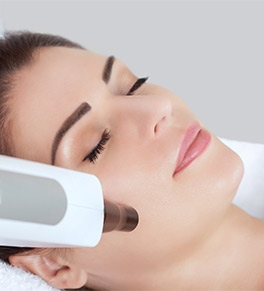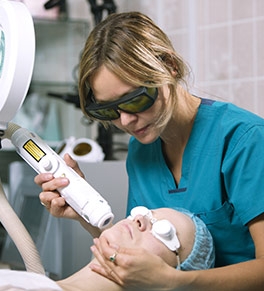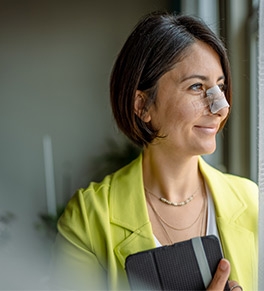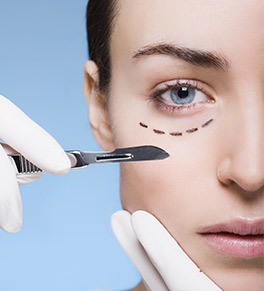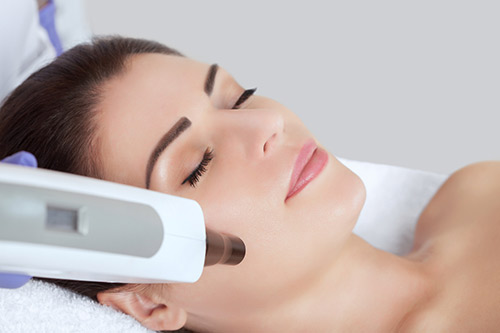
As we age, our skin often begins to look older than we feel. It produces less collagen over time, causing it to lose the support structure that helps keep it looking firm and youthful. Sun damage and pollutants can also take their toll.
Treatments such as laser skin resurfacing can help rejuvenate your skin, improving the appearance of imperfections and giving you a more refreshed, youthful look.
In this blog, Dr. Cecil Yeung of the Yeung Institute will explain more about this procedure and whether it might be right for you.
What is laser skin resurfacing?
The technical name for this cosmetic procedure is fractional CO2 laser skin treatment. It utilizes intense light waves of carbon dioxide (CO2) to carefully and precisely remove the top layer of skin.
Your skin will heal quickly since only the top layer is removed, and as it does so, new skin cells form to help give your skin a younger, tighter, smoother appearance.
What is laser skin resurfacing used for?
This procedure is often used on the face, but it can be used on other parts of the body as well. It can help improve the following issues:
- Wrinkles
- Fine lines
- Uneven skin tone or texture
- Acne scars or those caused by chicken pox or injuries
- Age spots
- Blemishes
- Birthmarks
- Stretch marks
- Sun damage
- Hyperpigmentation
What is involved in laser skin resurfacing?
Your doctor will examine your skin and also discuss your goals and medical history with you to determine whether you’re a good candidate for resurfacing.
If you and your doctor decide in favor of this procedure, very little preparation is required on your part. You may be asked to avoid taking certain medications – such as aspirin or ibuprofen – for 10 days before your procedure because they can interfere with clotting. If you smoke, you should also try to stop since it can slow the healing process. Finally, let your doctor know if you tend to get cold sores or fever blisters around your mouth. Laser skin resurfacing can trigger these issues in some people, so if you’re already prone to them, your doctor may prescribe preventive medication.
A plastic surgeon or dermatologist performs the procedure, and treatments usually take less than 30 minutes. This can vary according to the amount of skin that’s being treated, however.
Your doctor will use local anesthetics such as ointments and cooling devices to make you comfortable during the procedure. Tiny pulses of light will then be precisely directed toward your skin, with each emitting energy that can reach your skin’s inner layer.
After your treatment, you’ll need to stay indoors for a few days so your skin can be protected from the sun. You’ll also probably need a follow-up visit.
What can I expect from laser skin resurfacing?
Your skin may stay more reddish or pink for weeks after your treatment, and you should make sure to use sunscreen every day and minimize your sun exposure.
You may see an immediate positive difference in the appearance of your treated skin. Imperfections will be minimized, and your skin will have a more youthful, vibrant appearance. The results may continue to improve for up to a year, and the benefits are typically long-lasting.
Where can I find the best laser skin resurfacing in Houston?
Dr. Cecil Yeung of the Yeung Institute is a top board-certified facial plastic surgeon that is dedicated to tailoring the right treatments to suit each patient’s individual needs and goals. Known for both his technical skill and patient-centered approach, Dr. Yeung is able to achieve long-lasting results that look naturally beautiful.
Procedures such as laser skin resurfacing are performed at the Yeung Institute’s own state-of-the-art, fully accredited surgical center. Our center allows you to have access to top anesthesiologists and nurses, as well to the highest level of innovative technology, while still enjoying a private, convenient setting. Our excellent reputation attracts patients from throughout Texas as well as the rest of the U.S. and abroad.
If you’d like to find out more about laser skin resurfacing and whether it or another procedure is right for you, make an appointment with the Yeung Institute today!

